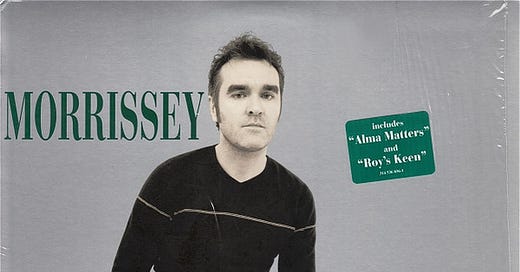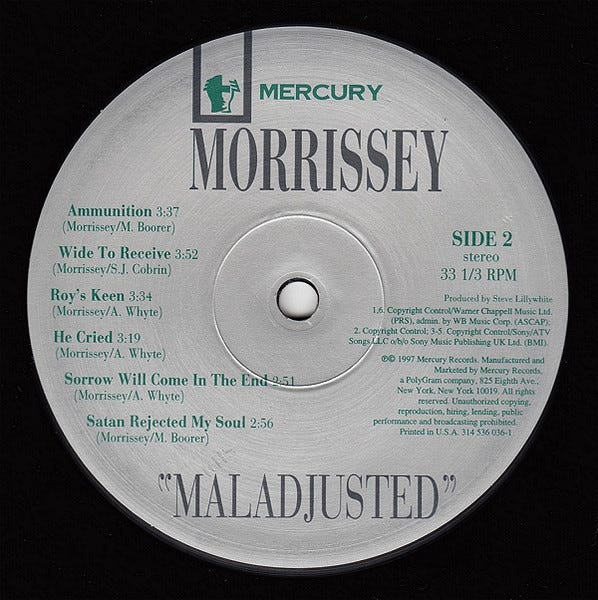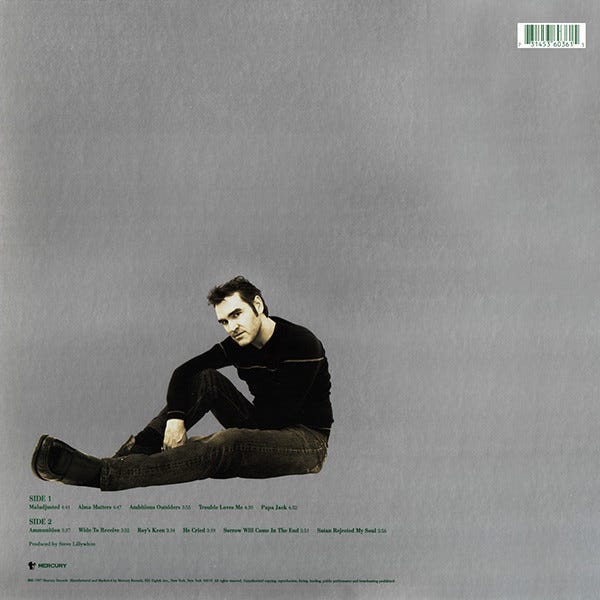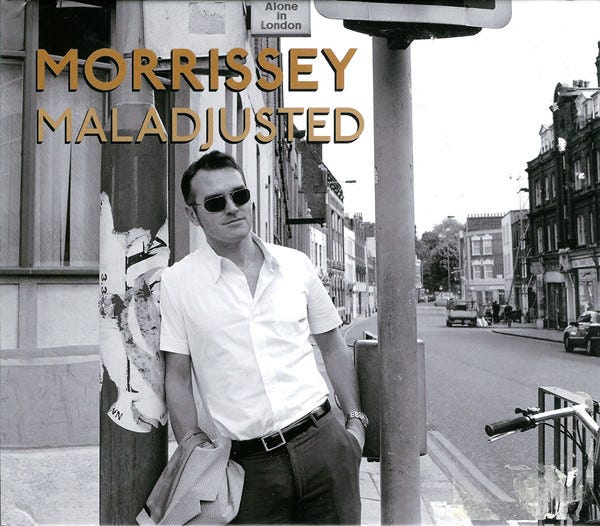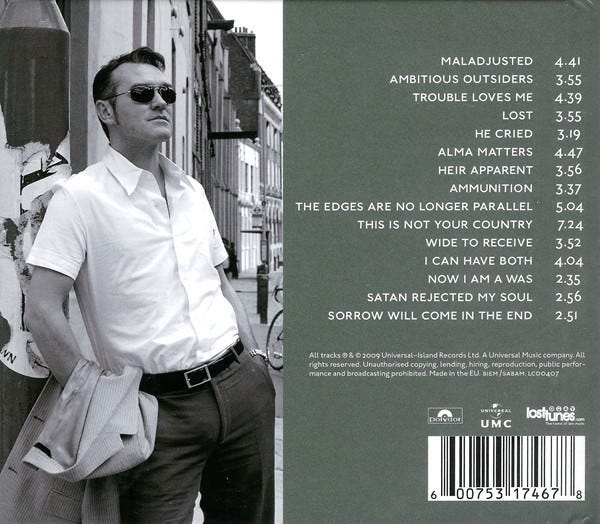Recorded at Hook End Manor1, England in January 1997, 'Ammunition' was the sixth track on the Maladjusted studio album2 (released in August 1997). Along with the other tracks on the album, the song was produced by Steve Lillywhite. The musicians on the track were Boz Boorer (guitars, clarinet, and co-writer), Alain Whyte (guitars, piano, backing vocals), Jonny Bridgwood (bass) and Spencer Cobrin (drums).
A quietly defiant song, the lyrics of 'Ammunition' exude equal parts self-assuredness and empowerment, with a bracing dash of clarity thrown in for good measure.
I know these roads
Each ridge and narrow bridge
Each Chevron, enticing me on
Each warning sign I take in my stride
The opening verse metaphorically speaks of a “road” — the path of Morrissey’s life. Morrissey conveys his understanding of where he is, where he is going, as well as the lessons that he has learned along his path.
I don't need more ammunition
I've got more than I can spend
I don't dwell on things I'm missing
I'm just pleased with the things I've found
The metaphoric reference to “ammunition” in the second verse points to Morrissey’s emotional vulnerabilities. These vulnerabilities are memories, regrets, as well as attachments to those around him. This second verse signals an acceptance of the present circumstances rather than being fixed on something more. There is a focus on appreciation of what he has acquired through hard experience rather than being mired in regret and recrimination.
I know these roads
An old hand understands
Above all, I know what's expected of me now
Veering cliffwards
This verse expresses Morrissey’s familiarity and experience with the path of his life. Rather than being jaded, he speaks of it with sober clarity and understanding — Morrissey knows the arc of his life and understands the expectations he must live with. The verse’s final line - “Veering cliffwards” - suggests lurking danger or, perhaps, self-destruction. This is significant as it underscores that harm, whether emotional or physical, is ever present. If one is to live, to walk ones path, one inevitably walks along the precipice.
I don't need more ammunition
I've got more than I can spend
I don't dwell on things I'm missing
I'm just pleased with the things I've found
The things I've found
The things I've found
I've found
This third verse reiterates the song’s main themes: emotional sufficiency and the absence of regret, with a focus on personal growth.
I've been crying
It comes back on these salient days
And it stays and it says:
"We've never really been away..."
Morrissey reveals his vulnerability in this penultimate verse, which is emotively bittersweet. “Salient days” references anniversaries, significant dates, and (possibly) emotional triggers. Metaphorically, the past returns and speaks to him, reminding him that it not a distant or fading memory, but something that shall always be present.
I don't need more ammunition
I've got more than I can spend
I don't think of who I'm missing
I've got no space and no time in my life, anymore
No space or time in my life, anymore, for revenge
The final verse provides a powerful conclusion to the track. Morrissey rejects the bitterness that plagues so many people who have lived a troubled existence. He has moved beyond the concepts of vengeance or retribution, instead remaining focused upon the peace (perhaps even closure) that comes from letting go.
Musically, ‘Ammunition’ is marked by a minimalist, intensely introspective atmosphere that perfectly complements its reflective lyrics. Set in a minor key with a steady, moderate tempo, the arrangement creates a warm backdrop. Expressive vocal phrasing lends emotional depth, while simple, repeating chord progressions support the song's themes of resilience and acceptance.
The song’s bridge brings a momentary yet dramatic and emotional turn, marked by distorted, screeching guitars that break away from the song’s previously subdued and reflective mood. This sudden shift in sound is as jarring as it is expressive. This sonic coup de théâtre acts as a cathartic release that mirrors the lyrics that directly follow it: “I’ve been crying / It comes back on these salient days…” The contrast between the bridge and the gentler verses and choruses heightens its impact, making this section feel like an emotional climax. This acts not only to underscore the song's darker undertones. but also pushes the narrative beyond quiet acceptance into a more visceral confrontation with the past.
Overall, Lillywhite’s production is understated, with sparing use of reverb and space, which allows the raw emotion in the vocals and lyrics to take center stage. This masterful arrangement, coupled with the explosive bridge, works in concert to evoke a sense of quiet strength and thoughtful introspection.
“Ammunition” resurfaced in April 2009 as part of the expanded and redesigned reissue of the Maladjusted album, taking its place as its eighth track. Reflecting on the song’s fate, Morrissey described it as “a strong single release never to be.”
Morrissey has never performed ‘Ammunition’ live, a regrettable omission given the song’s themes, which seem almost tailor-made for the introspective defiance that defines his enduring persona.
“Maladjusted had been recorded once again at my spiritual home, Hook End Manor. Time at Hook End had always been a time to reflect on velvet lawns of dreaming spires where the quiet winds its way. The most bucolic spot of winsome British charm, the lithely blithe Hook End shelters specters dating back to the 1700s, and an underground tunnel from the 1200s. Unmarked by the injuries of time, the bosom of Hook End melted everybody’s heart with its greenest of greens against the bluest of skies; a paradise of deafening birdsong around the red- and mellow-bicked splendor of jutting chimneys and latticed windows - all leftovers from the Jacobean era of liturgical dramas.” - -Morrissey, Autobiography. p. 344
“…yet another collection of unpopular themes, and one which will largely pass unnoticed,” -Morrissey, Autobiography. p. 342

